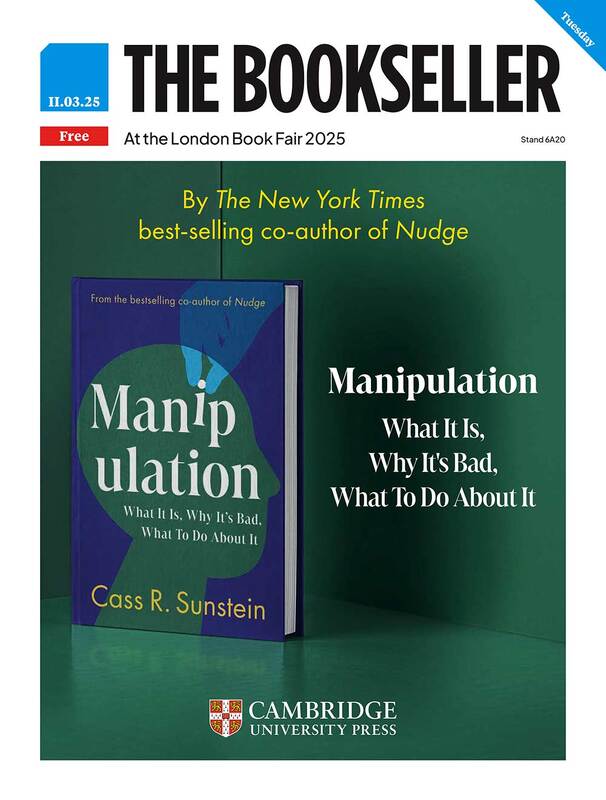You are viewing your 1 free article this month. Login to read more articles.
Johnson found in contempt of court after threatening to release secret Bonnier tapes
Former Bonnier Books UK c.e.o. Richard Johnson has been found in contempt of court after failing to respond to multiple court orders which resulted from threats made by Johnson to Bonnier executives to release secretly recorded conversations with senior staff.
Johnson claimed he would go public with the taped conversations with colleagues, stretching back years, if the company did not remove his name from documents in its court case with its former accountants Haysmacintyre LLP, according to a High Court judgment issued by Justice Murray on 30th June. On receipt of the threats, Bonnier Books UK sought and gained an injunction. But this week's final judgment, handed down in the High Court, revealed how the controversial former publishing head then failed to comply with various court proceedings.
The newly released court papers detail how, when Johnson was fired in March 2018 for gross misconduct, he was ordered to return any materials or information relating to Bonnier or copies made from his time there. However, he later claimed to have kept copies of some meetings with senior staff and high-profile figures, the judgment states.
The first example emerged 18 months after his dismissal. “In November 2019 Mr Johnson published on his Instagram account what appeared to be a covertly recorded video of a meeting he had attended on behalf of Bonnier with Sir Bob Geldof,” the judgment reads. “This was subsequently taken down.”
Almost a year later, in September 2020, Bonnier began proceedings against Haysmacintyre LLP, alleging the accountancy firm was negligent in auditing the statements of the publisher's UK arm under Johnson, costing it more than £90m. Haysmacintyre has said the claim is "without merit". The publisher said that Johnson—who was group chief executive for nine years—had “materially overstated" accounts. The claim stated that, as well as failing to implement appropriate accounting policies, Johnson misappropriated sums of more than £3.5m, something he later dismissed to The Bookseller as "total nonsense".
The judgment states Johnson sent an email on 30th January 2021 to three executives of Bonnier’s parent company claiming he had “taped a lot of conversations with senior people in Bonnier over the years and the conduct and those tapes are as clear as anything. Both audio and video and all my evidence on everything is held remotely”.
He claimed to have “multiple pieces of evidence which run into over 40GB” and files “on the cover-up scandal, the accounting policies, the tax evasion and anything else I can find. I have multiple emails, texts, audio tapes, file notes”.
In the email, Johnson said he had authorised two people to release this evidence publicly and that, if he received one legal letter, he would immediately reveal the information. “He demanded that Bonnier take steps 'within 48 hours' to remove his name from any court document and 'to ensure' that he was not mentioned in any press discussion of the Haysmacintyre claim, or he would immediately release his 'files' to the press in Sweden and Finland, to the book press in Germany and the UK, to the shareholders of Bonnier and to Haysmacintyre,” according to the judgment.
As a result of the threats, Bonnier made a without notice application for injunctive relief on 31st January, which was granted. The order was made to Johnson by email on 31st January and an attempt was also made, on 2nd February, to serve Johnson personally at his residential address, but he did not answer the door.
On 2nd February, Johnson emailed Erik Haegerstrand, c.e.o. of the Bonnier Group, and Mr Magnus Janson, a director of Bonnier, in which he made various allegations about the historic conduct of Bonnier’s business, referred to his mental health and freedom of speech and “strongly advise[d]” Bonnier to leave him alone. “In that email he referred, for example, to information he had discussed with a previous employee of a group company of Bonnier, and photos he had taken at events organised by Bonnier,” the court papers read.
Later that day, Johnson emailed Bonnier’s solicitors, Mishcon de Reya LLP, claiming to be suffering from post-traumatic stress disorder. He also denied holding any materials relating to Bonnier or that anyone held these for him, that were not publicly available. He concluded by writing: “This answers your questions per the court direction. I shall now therefore be ceasing to use this email any longer so you can't harass me.”
A subsequent email from Bonnier Books UK’s solicitors received a response which read: “Hello. I no longer use this email address and don’t check the inbox for any received.”
Over the past few months, Johnson has failed to respond to the court or the solicitors’ requests. He did not attend the final judgment on 17th June and was not represented. “He had indicated in correspondence with MdR [Bonnier Books UK’s solicitors] just prior to that hearing that he could not attend for medical reasons, although to date no medical evidence has been provided,” Murray wrote in the judgment. “Mr Johnson has not, however, submitted any medical evidence to support those reasons.”
In a short witness statement eventually sent to the court on 16th June, Johnson wrote: “In the matter of my employment with Bonnier Publishing Limited (subsequently Bonnier Group Holdings Ltd) I can confirm there are no third parties that I have disclosed confidential information to, either verbally or via documents, and I have no property, documents or copies under my possession that relate to my employment with Bonnier Publishing Limited and neither do any third parties under my control.”
Justice Murray concluded that he "was satisfied beyond reasonable doubt that each instance of contempt of court alleged in the applications had been committed by Mr Johnson". He also ordered that Johnson pay costs to the publisher of £26,505 for the first application and £41,298 for the second. The justice did accept that "Johnson had belatedly substantially complied" with parts of the original injunction order by filing his witness statement.
The court is still to consider the consequences of Johnson’s contempt of court and whether a further hearing is necessary or appropriate. An earlier judgment, from Bonnier's first contempt application, had warned Johnson that failing to comply could lead to him being imprisoned, fined or having assets seized. "This is not a formality. It means that, if persisted in, Mr Johnson’s failure to engage with these proceedings can lead to his arrest and being made subject to quasi-criminal proceedings and punishment," Mrs Justice Collins Rice said.
The Bookseller has contacted Johnson for a comment. Bonnier Books UK declined to comment.




















